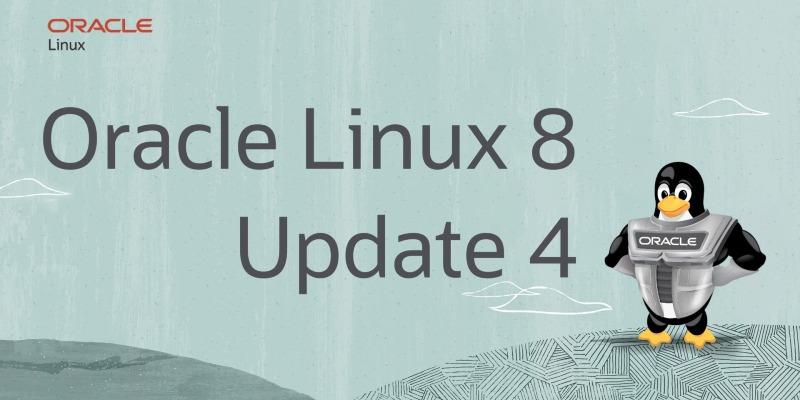Simon Coter has announced the release of Oracle Linux 8 update 9 for the 64-bit Intel and AMD (x86_64) and 64-bit Arm (aarch64) platforms.
Oracle Linux 8 Update 9
Oracle is pleased to announce Oracle Linux 8 Update 9, the latest update to release 8 of the premier enterprise operating system for distributed computing environments. Oracle Linux sources, binaries, ISOs, and errata remain unrestricted and freely available from the Oracle Linux yum server.
Oracle Linux 8 update 9 for the 64-bit Intel and AMD (x86_64) and 64-bit Arm (aarch64) platforms is now generally available. Since the first release of Oracle Linuxin 2006, Oracle is committed to keeping Oracle Linux binary-compatible with the correspondent version of RHEL. This is the case with the release of Oracle Linux 8 update 9, which ships with the newest Unbreakable Enterprise Kernel Release 7 Update 2 (UEK R7U2) and Red Hat Compatible Kernel (RHCK) packages.
Oracle Linux 8 Update 9 is packaged with the following kernel options:
- Unbreakable Enterprise Kernel (UEK) Release 7 Update 2, 5.15.0-200.131.27 for both x86_64 and aarch64 platforms
- Red Hat Compatible Kernel (RHCK), 4.18.0-513.5.1 for x86_64 platform
What's New
Compilers and development tools
Oracle Linux 8 Update 9 includes GCC Toolset 13, available as an Application Stream in the "AppStream Latest" yum repository. Applications and libraries provided by GCC Toolset 13 do not become the default or preferred choices but, instead, are available as a software collection through "sc" command line utility; the following tools and versions are provided by GCC Toolset 13:
- GCC 13.1.1
- GDB 12.1
- binutils 2.40
- dwz 0.14
- annobin 12.20
Additionally, the following compilers and toolset have been updated:
- LLVM Toolset 16.0.6
- Rust Toolset 1.71.1
- Go Toolset 1.20.10
Dynamic Programming Languages, Web, and FTP Servers
The nodejs:20 module stream is now available and includes Node.js 20.9 release, which is a Long Term Support (LTS) version. The following notable features are also included:
- The V8 JavaScript engine is updated to version 11.3, bringing improved performance and new language features.
- Node.js includes the experimental Permission Model that allows developers to restrict access to specific resources during program execution.
- The node:test module is now considered stable and it is ready for production use.
- The npm package manager is updated to version 9.8.0.
The HTTP::Tiny Perl module is updated to perform TLS certificate verification by default when using HTTPS and the verify_SSL option is changed from 0 to 1 when the package is installed.
The ssl_ciphersuites option can now be used when configuring vsftpd to use different cipher suites, including TLS 1.3 cipher suites.
Security
The SCAP Security Guide has been updated to align with Version 2.0 guidelines; several rules were updated in the SCAP security guide to provide more consistent interactive user configuration. With this new release, user accounts with UID greater than or equal to 1000 are considered interactive, unless the account username is nobody or nfsnobody, or the account login shell is set to /sbin/nologin.
Filesystem and Cloud
Oracle Linux 8 Update 9 with Unbreakable Enterprise Kernel Release 7 Update 2 continues to maintain and grant support for the btrfs file system, one of the most modern copy on write (COW) file systems for Linux.
NetworkManager, the standard Linux network configuration tool suite that supports a wide range of networking setups, can now be managed through the updated "cloud-init" release instead of the default sysconfig method for network setup.
Oracle Linux 8 Update 9 includes updated Linux Kernel and improved technology for developers
Oracle Linux Downloads

